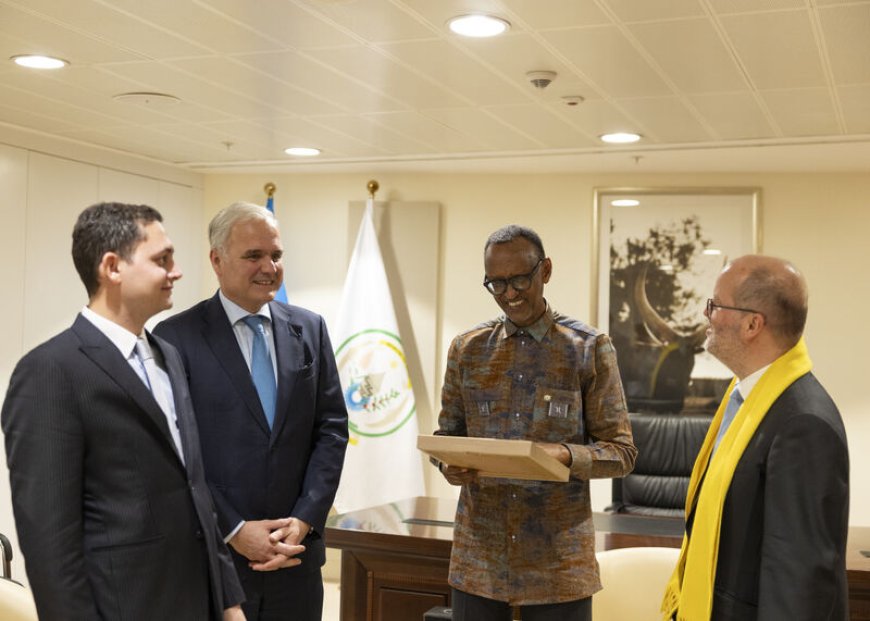Rwanda Champions Pharmaceutical Equity in Africa Through Local Production and Pan-African Collaboration
Rwanda leads Africa’s push for pharmaceutical equity through local production, pan-African licensure, and regional manufacturing. Learn how President Kagame and global leaders are transforming healthcare access.

President Paul Kagame of Rwanda recently held high-level talks with regional and international pharmaceutical leaders to expand access to necessary medications, marking a major step toward attaining pharmaceutical parity in Africa. The goal of the conference, which was attended by Dr. Shaheer Bardissi, CEO of Minapharm Pharmaceuticals, and Stefan Oelrich, president of Bayer Pharma, was to improve healthcare results in important areas including female reproductive health and neglected tropical diseases (NTDs).
Regional manufacturing, pan-African licensure, and African product development were the three main topics of debate. Rwanda hopes to lessen the continent's need on imported medications and increase its ability to manufacture life-saving medications domestically by giving priority to these methods. This program relies on Rwanda's groundbreaking vaccine production initiatives, which have established the nation as a leader in Africa's healthcare self-reliance movement.
A Continental Vision for Pharmaceutical Equity.
Rwanda's strategy extends beyond vaccinations and includes the manufacturing of other vital pharmaceutical items, such as hormones and small compounds. The growth of strong ecosystems in the areas of entrepreneurship, human resource capacity building, and regulatory affairs supports this expansion. In addition to meeting regional healthcare demands, Rwanda is advancing a pan-African goal of fair access to medications by expanding its pharmaceutical capabilities.
One of the initiative's main supporters, the kENUP Foundation, has commended Rwanda's leadership in advancing this revolutionary agenda. In order to address the healthcare issues facing the continent, African-led solutions are crucial, according to Holm Keller, Executive Chairman & CEO of the kENUP Foundation. "Africa can guarantee that its patients have prompt and reasonably priced access to the medications they require by taking charge of its pharmaceutical future," Keller said.
Gratitude for Collaborative Leadership.
The kENUP Foundation also conveyed its appreciation to the people and institutions spearheading this intricate yet significant endeavor. Dr. Sabin Nsanzimana, Rwanda's Minister of Health, and his staff received special appreciation for their steadfast dedication to promoting healthcare parity. Additionally, the Foundation recognized.
 Kinyarwanda
Kinyarwanda
 English
English








































































